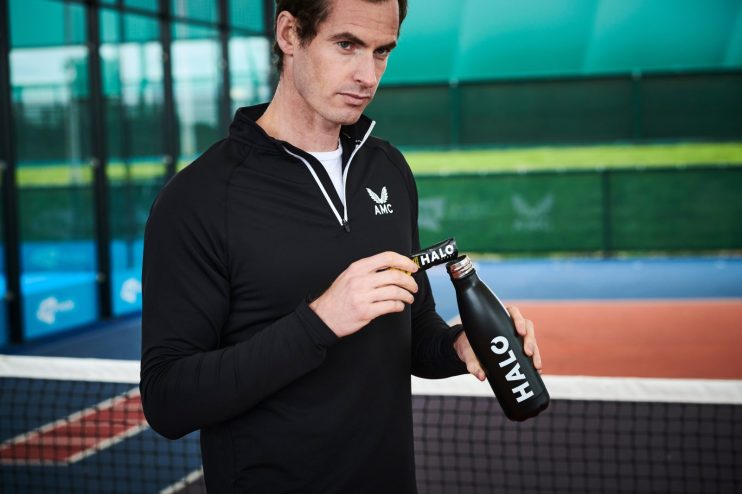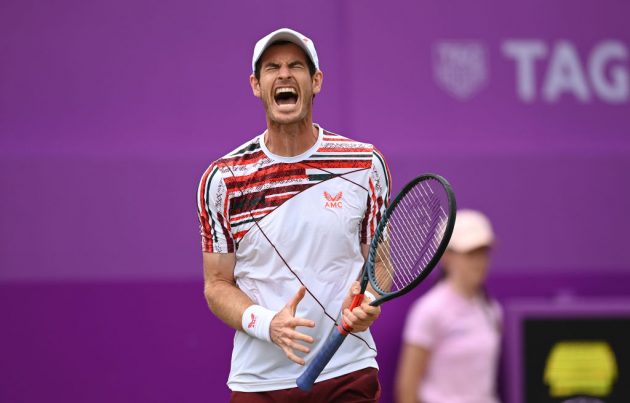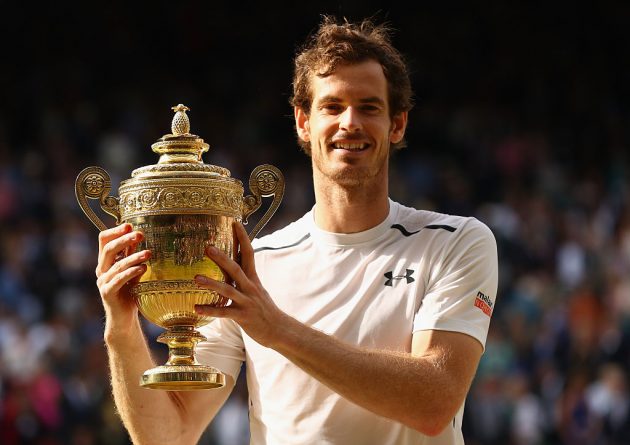Net profits: Andy Murray on life as an entrepreneur and investor, his new sports drink venture and why he’ll focus more on business after tennis

Sportswear entrepreneur Tom Beahon can remember one of his first meetings with Andy Murray, at the 2019 Australian Open.
“Andy was in his hotel room, watching a Djokovic match, making notes on which side of the service box Novak was serving to just in case he played him in that tournament,” recalls Beahon, whose company, Castore, has a partnership with Murray.
“This is Melbourne. It was 28c outside, everyone was out having a great time, and he was in his hotel room with his notepad watching matches.”
Murray’s commitment, diligence and drive are no secret – they propelled him to the top of men’s tennis and brought him three grand slam titles, two Olympic gold medals and the world No1 ranking. Next week he will begin his latest bid for a third singles title at Wimbledon.
But less well known is that he has also channelled those traits into a burgeoning business portfolio which includes his own management company, five-star hotel, clothing range and stakes in dozens of startups.
“I’ve got a few interests now,” Murray tells City A.M. “I think it’s good to have something outside of tennis and I only get involved in businesses that I’m interested in or where I like the product.”
Authenticity and passion key for Murray
Murray set up his own management company, 77, in 2013 after failing to find an agency that he felt put athletes first. It now has a handful of clients from tennis and football who he mentors and advises.
When Cromlix House, a hotel near his home town of Dunblane which had hosted his brother Jamie’s wedding reception, went bust in 2012, Murray bought and relaunched it. He celebrated his own nuptials there three years later.
Murray has long held a stake in Seedrs and used the crowdfunding platform to invest in around 40 British startups. While his Seedrs stake may have proven a smart punt, people close to Murray say it has also been a way to have fun and back British businesses.
And when Castore was seeking a big-hitting athlete to endorse its range of premium sportswear, Murray proved a good match. He was keen to not only wear the brand but also launch his own range, the Andy Murray Collection, as a joint venture.
“Authenticity is key for him,” says one person to have worked with the Scot. Says another: “He’s a passionate guy. When he’s into something he’s pretty into it.”
Halo Hydration, Murray’s latest business venture
Murray’s latest business project is Halo Hydration, an organic sports drink brand in which he has also invested.
Halo founder Anshuman Vohra, a budding college tennis player before moving into banking and setting up gin brand Bulldog, says that the 34-year-old’s camp initiated the partnership.
“Andy is very guarded about his reputation and the products he gets involved in but he’s very into being a better version of himself in all things,” says Vohra.
“I didn’t just want his name, I wanted his heart and soul in it. Beyond being an investor, I think Andy is the principal advocate for Halo in his lifestyle and everything he does.”

Murray has already helped to shape Halo’s offering, advising not only on what athletes want from their drinks but also when to approach the market.
“He’s a guy you can ideate with,” adds Vohra. “Most people are used to seeing Andy the professional tennis player, they’re not used to seeing Andy the creative, thoughtful guy.
“To use a colloquial term, he’s been a consigliere to me.”
Murray ‘a deep thinker’ and ‘intellectually curious’
Beahon can also vouch for Murray’s input, which runs far deeper than most brand-athlete relationships.
“Whenever I’ve had business conversations with him, Andy has been very intelligent, strong in his desire to learn new things and understand,” he says.
“He’ll ask me questions about supply chain and sustainability. Why does it take 12 months to get a product? Why do we have to test it that many times?
“He is a deep thinker, very considered. If you were to benchmark what you need to be successful in business, I think he’s got a lot of those attributes.”
Murray is “a pretty intellectually curious guy”, agrees Halo boss Vohra.
“That doesn’t necessarily come through when he talks about tennis. But in business, he thinks about why and how he is going to move the needle. I love that.”
Perhaps his most valuable quality, for many of his businesses, is his sporting experience.
“Someone who has won Wimbledon and the Olympics has probably seen every crazy curveball and tough situation in life,” Vohra says. “You can’t buy that type of education.”
Murray embracing business trends and blurring lines
Murray is one of the few British sportspeople to embrace investing as a second career.
It’s a well-trodden path in the US, where NBA stars Shaquille O’Neal and LeBron James have grown their sporting fortunes with canny investments.
“It’s an interesting one,” says Beahon. “Over here that doesn’t seem to be the case in the same way and there doesn’t seem to be any real reason for that, other than the opportunities get given to the US guys more freely.”
Now, athletes will often take an equity stake instead of a sponsorship payment. “It’s more meaningful than an endorsement,” said one industry figure.
Murray blurred the lines further with TRR Nutrition, which created a bespoke collagen product for him during his recovery from hip surgery in 2018.
Reasoning that others might need it too, he persuaded TRR to take it to market as part of a partnership with him.
He has also dipped his toe into the booming world of digital collectibles by launching an NFT with artist Beeple.
Former Wimbledon champion keen to play on
Murray still has a day job, however, and he hopes to continue playing tennis for several more years.
He loves the grass courts of Wimbledon and believes his experience on the surface gives him an edge on many of his rivals.
“I think I can do well,” he said this week. “I don’t think there are that many guys who are unbelievably comfortable on the grass – so that plays in my favour. And obviously a lot of the younger guys didn’t get the opportunity to play on it last year.”

He feared he might never play singles again after hip surgery, however, and even now admits years of injuries could force him into premature retirement.
“I don’t want it to be my last Wimbledon. That’s not my plan. I’m not going into Wimbledon thinking I’m saying goodbye.
“I want to keep going and I want to keep playing. But obviously I don’t know. If I got a significant injury or whatever, then yeah that would obviously change things.”
Murray to step up business life when tennis stops
When Murray does decide to hang up his racquet, he will have no shortage of offers.
Those close to him believe he may stay involved in tennis through coaching, but while increasing the time he spends on his business interests.
“I hope I’ve still got a while yet with the tennis, but I will definitely be getting more involved in the businesses that I’ve invested in once I retire,” says Murray.
“Hopefully having a professional athlete’s unique insight will be useful to some of the businesses. Hopefully I can use my profile to help open doors and allow them to grow.”
Beahon adds: “When you’ve got that instinctive drive, passion, ambition and hunger in you, I don’t think he’ll be able to go and spend his days in the Maldives.”
Vohra, meanwhile, has given Murray an open invitation to work more closely with him at Halo Hydration.
“I yearn for the day that he WhatsApps me and says ‘I’m coming to New York and want to be more involved,’” he says. “Andy can dictate his terms.”
Andy Murray is an ambassador and investor in HALO Hydration which is now available in the UK at Halosport.com